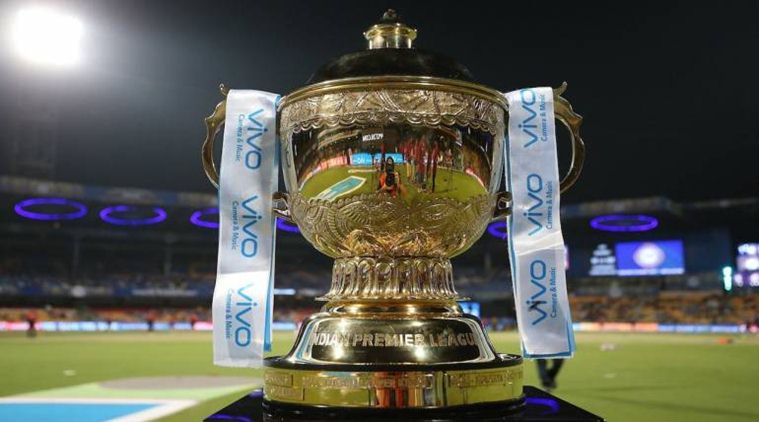 Investigator BB Misra believes that this business alliance made junior players vulnerable toa being arm-twisted into signing up with such companies to manage their brand endorsements.
Investigator BB Misra believes that this business alliance made junior players vulnerable toa being arm-twisted into signing up with such companies to manage their brand endorsements.
During his four-month-long probe into the 2013 IPL corruption scandal, Supreme Court-appointed lead investigator B B Misra stumbled upon what he calls a “nexus” between agents who run player-management companies and senior cricketers who have stakes in such enterprises.
Misra believes that this business alliance made junior players vulnerable to being arm-twisted into signing up with such companies to manage their brand endorsements. He added that those resisting this pressure risked their place in the side and stressed that there was a need for the BCCI’s anti-corruption unit to probe this nexus.
“We did probe the financial dealings of certain players, those with some connection with private businessmen, and in that connection we spoke to a large number of people and my gut feeling is that the BCCI’s anti-corruption unit must look into this issue,” Misra told The Indian Express during an extensive interview.
Misra was also categorical that undeclared business interests between cricketers and agents amounts to corruption. “Like somebody will say I have nothing to do with that business but actually you find that he has a shareholding in that business. You are not disclosing your financial relations with somebody and that amounts to corruption. The manager is basically running a company and this senior player is a shareholder in that company.”
The former IPS officer said players or even officials connected to managers and agents could use coercion to help their “friends” bag lucrative deals by signing up upcoming cricket stars for endorsements and talent management.
“Dealings can be in the form of agreement with the players or players endorsing products. A senior player or somebody who is an official who can select the junior player…can arm-twist them (junior player) easily. I can arm-twist a junior player (by saying) ‘you select this particular manager or person for managing your clients or (business) affairs’…The player is a little scared that unless he obliges, he could face some difficulty in the team. Maybe he will not be selected. So these things do happen. I got this information from my sources. I investigated. There is something the BCCI should investigate. A lot more will come out about deals between players and managers,” Misra added.
When asked if this nexus could affect team selection, Misra said: “It can. People will try to influence team selection.”
During his probe, among other players’ representatives, Misra met Arun Pandey of Rhiti Sports that managed former India skipper MS Dhoni. Back in 2013, Dhoni had a stake in Rhiti Sports for about a month. At least three other Indian players Ravindra Jadeja, Suresh Raina and RP Singh were with Rhiti Sports at that time.
When contacted, Pandey said that “all clarifications had been given in the past” and that “it was a non-issue.” “As of today, Mahi (MS Dhoni) does not even have one share of Rhiti Sports. He is only a client of Rhiti Sports,” Pandey said.
In 2015, when Virat Kohli replaced Dhoni, similar “conflict-of-interest” questions cropped up. This time, the firm in question was Cornerstone, that was owned by Bunty Sajdeh.
In July 2015, The Indian Express had reported how Kohli launched a chain of fitness centres under the brand name Chisel and a clothing line, Wrogn, in collaboration with CSE Consulting, a sister concern of Cornerstone, the company that managed him along with other India regulars Ishant Sharma, Umesh Yadav, Rohit Sharma, Murali Vijay and Shikhar Dhawan.
When The Indian Express tried to reach Sajdeh today, he didn’t respond. But speaking to The Indian Express in July 2015, he had denied any conflict of interest.
“If Virat had ownership in the agency, it would have amounted to a conflict of interest. In this case, he has no ownership in the agency. Virat is a client of Cornerstone and if CSE has any business interests with Virat or Rohit or Shikhar, I don’t see a conflict of interest. CSE is a licensing company and we are doing licensing business with him. It is a legitimate business plus I am not getting into any cricket business with him or any BCCI-related business with Virat,” he had said.
Misra’s observations on the nexus find an echo in Justice R M Lodha, author of the roadmap on reforming cricket management. Speaking to The Indian Express, he said: “This is why in our report we have prescribed a format about the disclosures that are to be made. This (player-agent nexus) is again a big mess. This nexus can change the course of the game, can change the course of administration.”
He said that, undoubtedly, “money and the financial aspect that drives (the agents)” could influence aspects of the game.
The findings of Misra’s probe in 2014 — from mid-June to October 31— were submitted to the Supreme Court along with Justice Mukul Mudgal probe panel report. This resulted in Rajasthan Royals co-owner Raj Kundra and Chennai Super Kings official Gurunath Meiyappan getting banned for life for betting, but details relating to players have not been made public.
(Tomorrow: Meiyappan and Kundra, beyond the indictment)